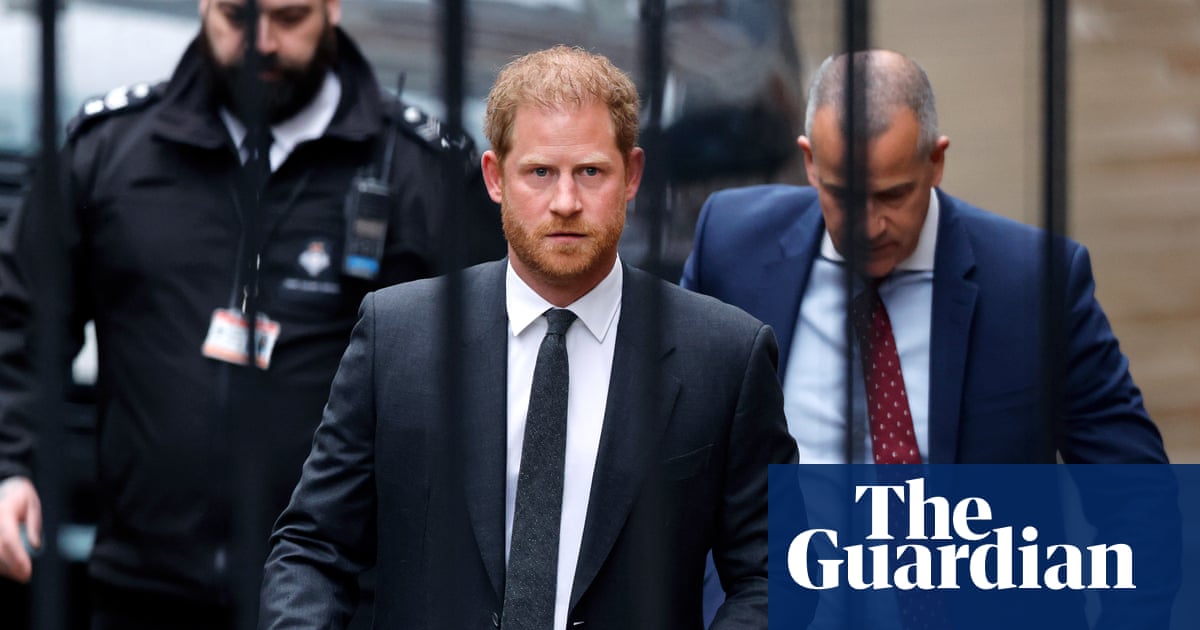
The high court has rejected an attempt by Harry Dunn’s parents to force the Foreign Office to hand over more documents relating to allegations that it obstructed a criminal prosecution of the wife of a US intelligence officer under pressure from the US state department.
Charlotte Charles and Tim Dunn are bringing legal action against the foreign secretary, Dominic Raab, and Northamptonshire police, claiming they acted unlawfully over the departure of Anne Sacoolas from the UK.
Their son Harry Dunn, 19, was killed last August when his motorcycle collided with a car allegedly being driven by Sacoolas on the wrong side of the road outside an RAF base in Northamptonshire.
After a preliminary hearing conducted remotely by video call on Thursday, Lord Justice Flaux and Mr Justice Saini also rejected a request to permit expert evidence from Sir Ivor Roberts, a former UK ambassador, on the application of diplomatic immunity, which is the issue at the heart of the case.
Lawyers acting for Dunn’s parents had argued for greater disclosure to help mount their case in a judicial review that the government had acted unlawfully in allowing Sacoolas to leave the UK. The review is due later this year.
The family’s spokesman, Radd Seiger, said their lawyers were pleased the judges had formally granted them the right to include their claim the Foreign Office unlawfully interfered in a police prosecution in the eventual judicial review.
He said he believed the Foreign Office should accept that evidence was mounting that contradicts it argument that immunity ever applied to Sacoolas.
Sacoolas left the country on 15 September, returning with her family to the US after the US embassy claimed she had diplomatic immunity. The US government has subsequently rejected a UK government extradition request after the Crown Prosecution Service charged her with death by dangerous driving.
Geoffrey Robertson QC, representing Dunn’s parents, accused the UK government of abusing its powers in accepting Sacoolas had diplomatic immunity, letting her leave the country and not informing the prosecuting authority, the Northamptonshire police, of its actions.
Robertson said full documents would potentially reveal whether the Foreign Office deliberately cut the police out of the process. Sir James Eadie QC, representing the government, said the Foreign Office had taken its duty of candour seriously but the disclosure of discussions, formal and informal, between states at diplomatic level would breach the expectation of confidentiality.
He said Robertson’s clients could not “simply turn up and say they would like an afternoon in the Foreign Office” to look at files.
The court ruling probably means any communication, if it exists, between the foreign secretary’s office and Foreign Office officials at the time of the conflict with the US over her diplomatic status will remain hidden.
Sacoolas was given permission to leave the UK on 14 September by the Foreign Office just 18 days after her car collided with Dunn on his motorcycle. A UK note of a meeting the day before between British and US officials shows the US declined to grant waiver of her immunity, saying it might set a precedent. The US then declared the Sacoolas family would be leaving the next day unless the Foreign Office had strong objections. Extracts from a text by a British official to the US the following day effectively gave permission for the Sacoolas family to leave.
Sacoolas’s husband was an intelligence officer at RAF Croughton in Northamptonshire. A secret treaty covering the status of the base explicitly waives the right of US staff at the base to claim diplomatic immunity for any act outside their line of work. The treaty, which was first signed in 1995, was silent on the issue of the status of staff dependants, and the US state department said this silence meant Sacoolas had immunity.
The Foreign Office, the court heard, initially challenged the US government interpretation, but a search of the documents in the department’s archives leading up to the treaty’s signature had revealed nothing to undermine the US interpretation.
Robertson told the court: “The Foreign Office obstructed the process by not letting the police know there was a limited immunity and then negotiated with the US embassy.”
He added: “The Foreign Office gave up and capitulated by telling the US that they might as well put her on a plane knowing that she was wanted by the police.”
The department’s actions stymied the police investigation, and effectively took over the role of the police, Robertson said. Northamptonshire police were not told Sacoolas had left the country until the day after she returned to the US.
Dunn’s parents released a statement ahead of Thursday’s hearing, saying: “All we want is for Anne Sacoolas to come back.”












